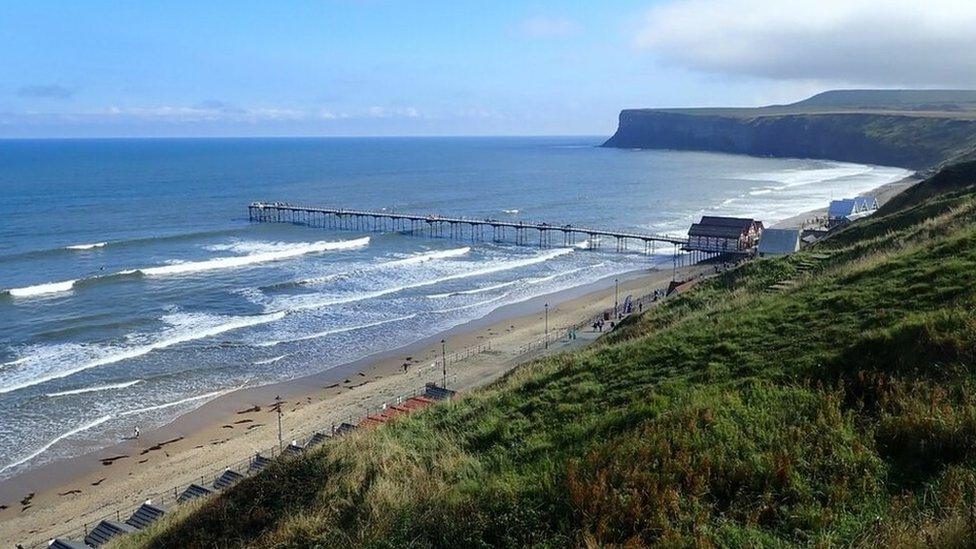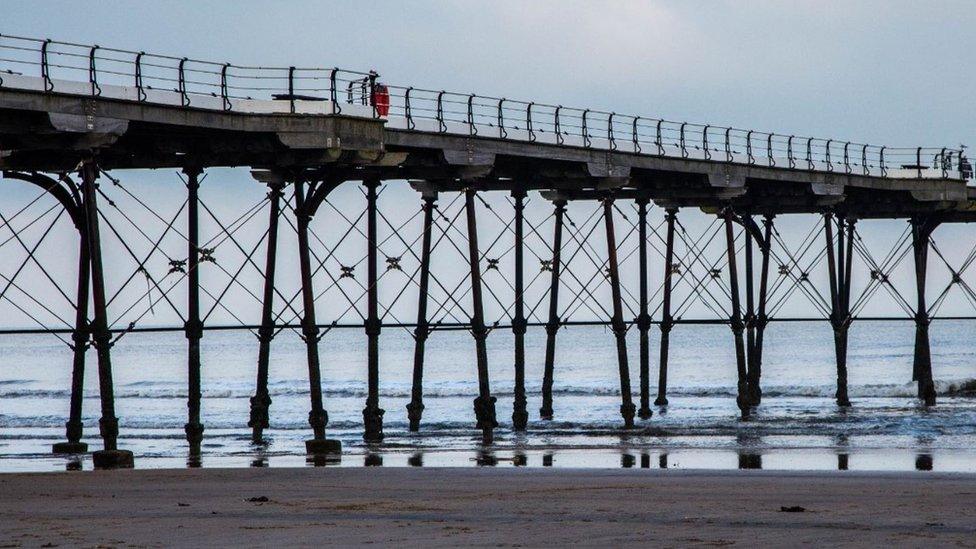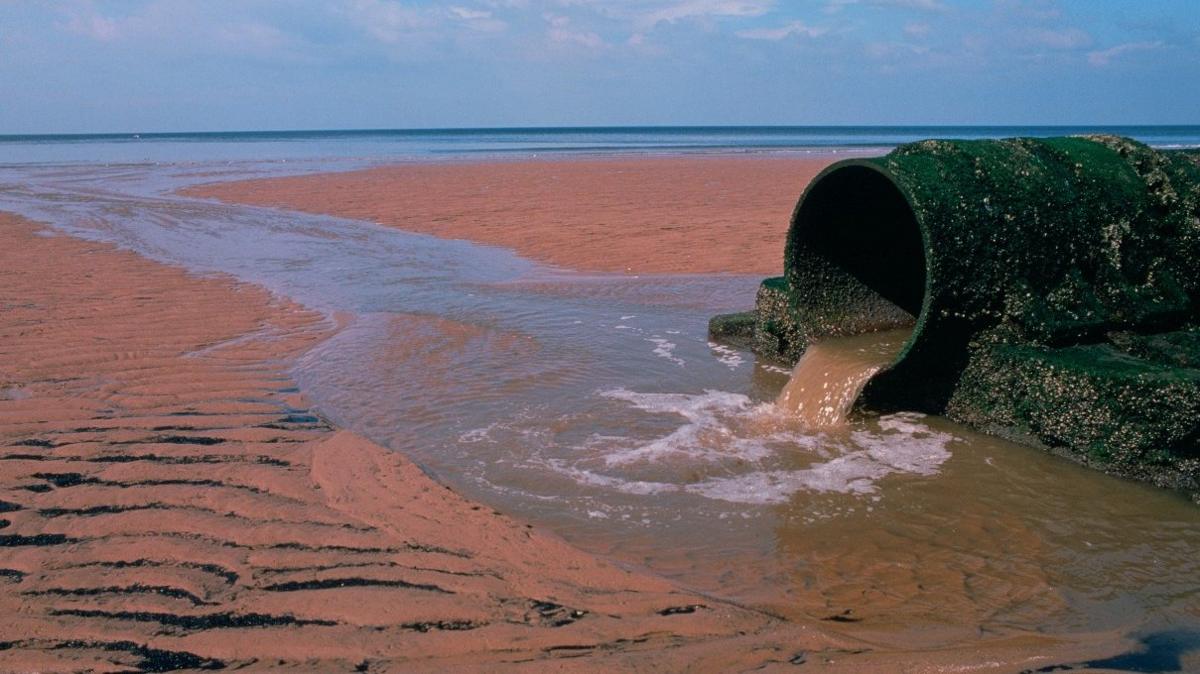Saltburn beach loses blue flag award over water quality
- Published

Saltburn is famous for its Victorian-era pier and is a magnet for surfers all year round
A popular beach has lost its coveted Blue Flag status due to a decline in bathing water quality.
Saltburn was the only beach between Whitby and Sunderland to be given the internationally recognised certification in 2022.
However, its bathing water quality, based on Environment Agency samples, has fallen from "excellent" to "good".
Keep Britain Tidy, which oversees the process, confirmed Saltburn was not eligible to apply this year.
It had previously won the Blue Flag award for four years in a row.
Full results will not be revealed until May.
Beaches can gain or lose Blue Flag certification each year with the award period running from the middle of May to the end of September, during which time the flag can be flown.
Other criteria include being kept clean and free of litter and waste, availability of public toilets, lifeguard patrols and accessibility.

The council can apply for other awards
In February, sewage water spilled on to the beach after work on a car park extension led to a main pipe being accidentally damaged, although this happened three months before the Environment Agency's testing period began.
Steve Kay, cabinet member for health and welfare at Redcar and Cleveland Council, told the Local Democracy Reporting Service there was "no evidence" to suggest sewage was to blame.
He also suggested there was no link the council was aware of to mass crustacean deaths on the region's beaches which have caused concern among environmentalists, fishermen and politicians alike.
"There was no specific cause given for the drop from 'excellent', but many environmental factors can affect the results, such as rainfall, agriculture and livestock, as well as things such as run-off from road drainage," he said.
In August, a sample found high levels of bacteria such as enterococci, which is found in human intestines, and e-coli in the sea.
This was attributed to a number of potential causes such as rainfall, sea turbulence, land run-off, seaweed decay, bird droppings and the water temperature.

Follow BBC North East & Cumbria on Twitter, external, Facebook, external and Instagram, external. Send your story ideas to northeastandcumbria@bbc.co.uk, external.
Related topics
- Published22 August 2022
